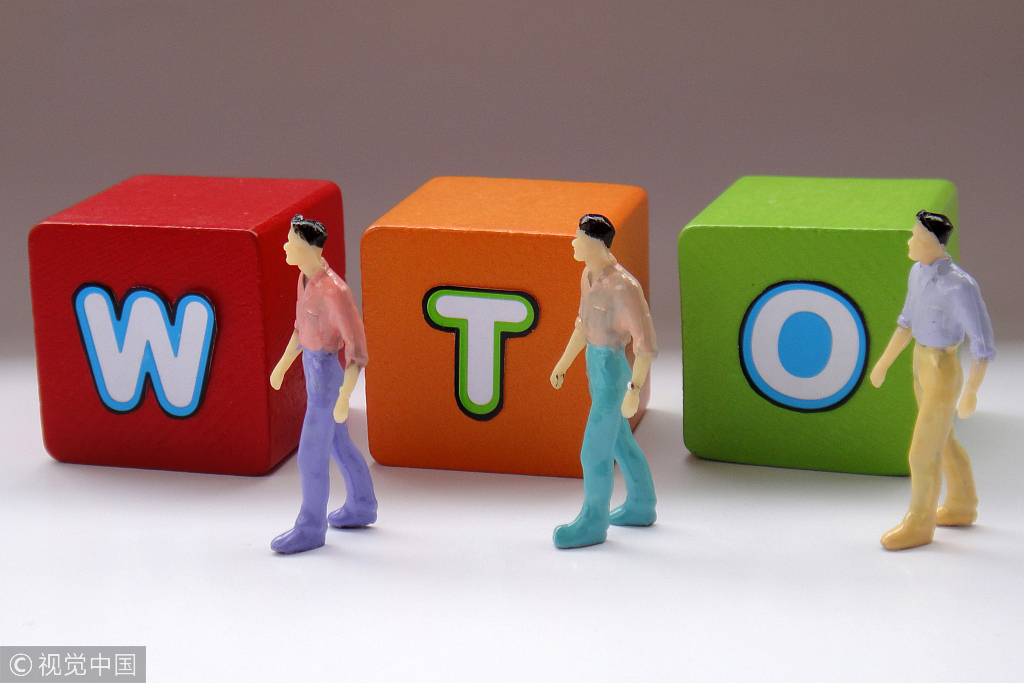WTO needed to avoid uncertain future


Global trade is under threat. Whether or not you call the current situation a trade war, certainly the first shots have been fired. This calls for our attention, and most importantly, our action.
World Trade Organization data show a marked escalation of trade restrictive-measures over the last six months. A number of import-facilitating measures were also recorded during the same period, but crucially the value of trade covered by these measures is falling, whereas the coverage of the restrictive measures is rising rapidly. Restrictive measures can include tariffs, quotas and stricter customs regulations.
The situation is extremely serious. Reciprocal trade restrictions cannot be the new normal. A continued escalation would risk a major economic impact, threatening jobs and growth in all countries, hitting the poorest the hardest.
There is a responsibility on the whole international community to help resolve these issues. I have been consulting with governments and leaders around the world, urging dialogue and exploring steps to unwind the current situation. But I have also been talking to a wider range of contacts across civil society — including parliaments, businesses, think tanks and the media — to raise awareness of what is at stake. I am calling on everyone who believes in trade as a force for good, and that global trade rules are an essential foundation for economic stability and prosperity, to speak up. Silence could prove as damaging as actions that lead to a trade war.
There have been some signs of progress. People are beginning to raise their voices. Business leaders and associations are calling on governments to refrain from putting up new barriers. They are asking governments to negotiate and find solutions. We are seeing a wider understanding that higher tariffs mean higher prices and lower salaries in real terms, and that greater uncertainty risks investors pulling back and jobs being lost. And from leaders around the world, we are seeing much greater engagement in the WTO. Instead of tearing it up, they want to strengthen the system and improve it. This could potentially help us to defuse tensions and find a path out of the current crisis in global trade.
In some ways this conversation about strengthening the WTO isn't new — I have been working with members over recent years to achieve exactly this, and we have made real progress. In recent years we have struck major deals like the Trade Facilitation Agreement, the abolition of agricultural export subsidies and the expansion of the Information Technology Agreement. This work must continue — and indeed discussions are continuing on a range of issues which are vital for growth and development in today’s economy.
Notwithstanding this progress, clearly many feel a wider debate on reform is needed. Conversations are already underway and some have been floating ideas, but we still don’t have a common view on where discussions should lead and what areas may be more promising or more necessary to address. Whatever the answers may be, there's no doubt that we need to redouble all our efforts to ensure the global trading system is more responsive both to the members' needs and to the challenges of a changing global economy.
As WTO members discuss all this, they will also have to deal with the threat to the dispute settlement system of the WTO. The 164 economies which make up the WTO’s membership account for 98 percent of global trade — and all of this is underpinned by the WTO's dispute settlement system. This is the mechanism through which members hold each other to account for perceived infractions and which prevents trade disputes from escalating into much more serious confrontations. As such, it is one of the fundamental pillars of global economic governance — and it is highly effective. Many disputes are resolved before they reach the litigation stage, but when they do proceed to that stage compliance with rulings is very high, about 90 percent.
Despite its effectiveness and the fact that it is in higher demand than ever, the dispute settlement system faces a serious challenge. The appointment process for the Appellate Body — the body of adjudicators which hears appeals to dispute cases — is blocked, due to certain concerns held by the US about the body's rulings and procedures. As adjudicators’ terms come to an end, we will soon reach the minimum number needed for it to operate. WTO members are ready to sit down and resolve the matter but at the moment this conversation is not advancing. We need real commitment from all sides to break this impasse.
These threads must come together in the conversations ahead about improving the WTO. The world needs this organization more than ever. Without it, we would face a future of uncertainty, trade war, lower growth, lower salaries and diminished job opportunities everywhere — in both poor and powerful countries alike. We have to use this moment to strengthen global cooperation on trade, which ultimately is in all of our interests.
The author is director-general of the World Trade Organization.



































